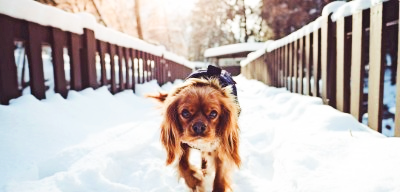
When temperatures drop below zero, the water in your pipes can freeze if they’re not insulated properly.
And since water expands as it freezes, it can put pressure on the pipe itself – causing it to buckle and split.
That’s why it’s a good idea to insulate your pipes (otherwise known as lagging) before frosty weather hits.
If recent years are anything to go by, we can expect plenty more icy winters.
And that could spell trouble for our pipes – and ultimately, our homes.
Frozen pipes are a big problem. Not only can they stop your heating and hot water from working properly,
but they can also burst – causing leaks, or even flooding.
So, if you think your pipes have frozen over, you’ll need to act quickly to prevent any further damage.

Look out for the warning signs:-
—Your central heating makes gurgling sounds when it’s on.
—Your boiler won’t turn on
—There’s no water coming out of your taps,
— or just a trickle
— Your sink is clogged,
— and your toilet is flushing slowly
What causes pipes to crack?
Temperature changes, or thermal expansion, are one of the most common causes.
As the ground surrounding the pipe freezes and thaws, the pipes contract and expand, often resulting in cracks.
Corrosive soils: Pipes made from iron and other metals can break over time if installed in acidic and corrosive environments.
How to Repair
Apply the putty into the repair area pushing it into any cracks and tapering it on to the surrounding surfaces.
Body should be held in place until it hardens and adheres usually around 2 minutes.
Find the frozen pipe First things first,
you’ll need to find out which pipe is frozen.
If you have a modern condensing boiler, it’ll most likely be your condensate pipe.
This will be a plastic one that comes out of your boiler – find where it goes outside to see if it’s frosted over.
Unfortunately, any outdoor pipe can be at risk during icy weather, as are the ones that pass through any cold spots in the house –
like lofts, basements and cupboards that sit on external walls.

What to do if you have a Leak or Flood
Turn off the water supply straight away.
You’ll need to turn the stopcock valve to close off your water supply – and don’t turn it back on until a plumber has fixed things.
If you’re not sure where your stopcock is, try looking under the kitchen sink or in a cupboard – possibly even one outdoors.
You'll need to switch off your central heating too.
Water Burst
If the leak is coming from outside your property and you can’t turn off the water supply,
you’ll need to find and contact your water supplier.
•Turn on all the taps
You'll need to get all the water out the pipes quickly so it can drain away without causing too much damage.
Turn on all the taps in your home, allow the water to drain completely until there's nothing left, then turn them off.
• Soak up any escaped water
To limit the damage, get a few old towels and soak up any water that's escaped from the burst pipe.
And if you’ve got standing water in your home, your insurance company will let you know what to do next.
• Make your electrics safe
If there’s a chance that any electrics have got wet, turn the power off at the mains.
Let them dry off completely and have them checked by a qualified electrician before turning them back on.
•Call your home insurance company
Most insurers have a 24-hour emergency helpline, so call them as soon you can.
Take photos of any damage and find the receipts (or other proof of purchase, like bank statements) for damaged belongings.
Then your insurer will tell you what to do next.
•Call a registered plumber
Always find a fully qualified plumber to carry out repairs, otherwise it may cost you more time and money eventually.
While you wait, you can make a temporary repair by binding the pipe tightly with cloth or heavy-duty tape.
But don't be tempted to do this in place of a professional repair – it won't last long.

Why does hot water pipe freeze?
When the ambient temperature drops to 32 degrees Fahrenheit or below, and expands as it does so,
creating enough pressure to rupture both plastic and metal water pipes.
The temperature of icy winter can cause the hot water pipes to freeze or even crack.
It is a strange thing that hot water pipes freeze quickly than cold water pipes.
By increasing the temperature of your house, you can attempt to unfreeze the frozen pipe.
Apply heat to the section of the pipe that is frozen.
This can be done by wrapping an electronic heating pad around the pipe, heating the area with a hair dryer or both.
If you lack either of these items, using towels soaked in hot water will help as well.
Can pipes freeze in an apartment?

Pipes can freeze in an apartment or flat in the same way they can any other property.
The main difference with frozen pipes in a shared building such as a block of flats or converted house
is that a burst pipe in one property can also cause damage to other homes.
Will my pipes freeze if I have no heat?
When pipes are not insulated very well or they aren't being used, and have no heating source,
the water in the pipes will begin to freeze.
If you leave pipes to freeze, it is more than likely that after an extended period of time they will begin to crack and inevitably burst.
What temperature do indoor pipes freeze at?
20 degrees Pipes are at risk of freezing when temperatures drop below 32 degrees Fahrenheit,
but they most commonly freeze at temperatures of 20 degrees and below.
It is always a good idea to have the phone number of your plumber handy.
As most of our clients can get
In a bit of a state! when things go wrong!
if the power goes off you may not be able to go online for a phone number.